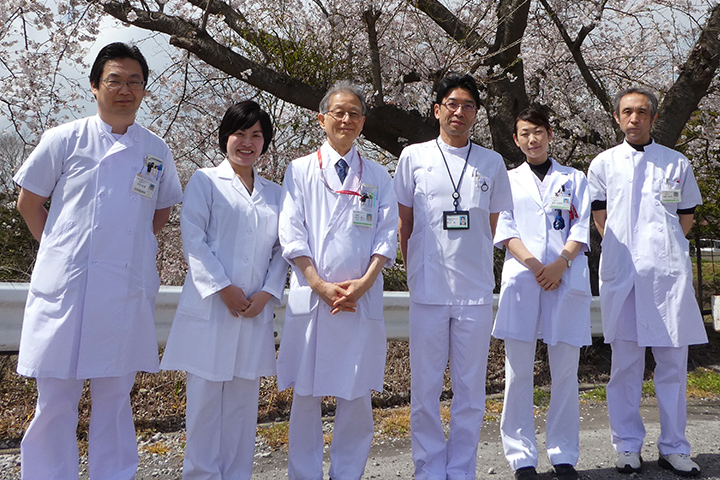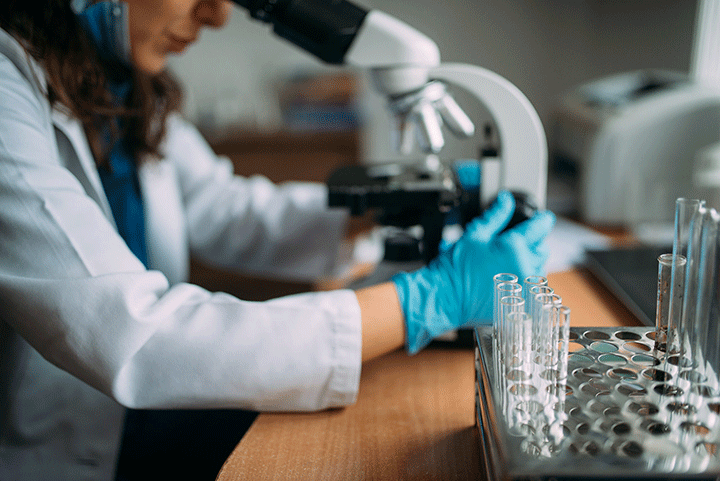Representing Genetic and Clinical Diversity in Pancreatic Cancer

One size rarely fits all, and the shift towards personalized medicine reflects this.
Until it is possible to truly tailor therapies to individual needs, some scientists are on a mission to ensure existing therapies are appropriate to the populations they serve.
Dr. Kentaro Sudo, of the Chiba Cancer Center in Chiba, Japan, is one of them. Because research cell samples and clinical trials tend to be skewed towards Caucasian populations, many of the most common cancer therapies were not designed or tested on a genetically diverse population.
This poses a particular problem for the pancreatic cancer patients Sudo treats, many of whom carry a mutation in a gene that plays a part in the way the cancer drug irinotecan is metabolized.
Irinotecan is part of the hugely successful combination chemotherapy regimen FOLFIRINOX (oxaliplatin, irinotecan, fluorouracil, and leucovorin). The combination was approved for treatment of Japanese patients in 2013, but it has come with a steep price: a higher incidence of adverse events, particularly diarrhea and severe neutropenia (low white blood cell count). Doctors in Japan have been modifying the regimen, but researchers are looking further into why this occurs.
There is a known polymorphism, UGT1A1*6, characterized by a single nucleotide replacement in exon 1 of the UGT1A1 (UDP‐glucuronosyltransferase 1A1) gene, that is the most frequent and important polymorphism among the Asian population and is rarely found among Caucasians. UGT1A1 helps the body process SN-38, the metabolite responsible for the antitumor properties of the drug irinotecan. Previous studies found an association between UGT1A1 genetic polymorphisms and irinotecan‐induced toxicity in colorectal cancer.
Findings Point to Need for Clinical Diversity
Sudo and colleagues decided to undertake a scientific study to assess the effects of the original and modified treatment on a selection of patients with and without the genetic polymorphism. They examined data from JASPAC 06, an observational study of FOLFIRINOX in patients with unresectable and recurrent pancreatic cancer at 27 institutions in Japan during 2013-14. They focused on patients who were screened for UGT1A1 genetic polymorphisms, 79 of whom were treated with the original FOLFIRINOX regimen and 120 of whom were treated with the modified FOLFIRINOX regimen, which involved a 30 mg/m2 reduction (from 180 to 150) of irinotecan and the omission of the 5‐FU bolus.
The group found that patients with UGT1A1*6 heterozygous polymorphism (one variant and one normal copy) tended to experience severe toxicity more frequently than those without it—and more frequently than those with a different polymorphism in the UGT1A1 gene (UGT1A1*28) —when treated with the recommended FOLFIRINOX dosage. Among patients with heterozygous UGT1A1*6 polymorphism, grade 3-4 leukopenia and diarrhea occurred more frequently than among those with heterozygous UGT1A1*28 polymorphism (leukopenia 75% vs. 23%, P = 0.04; diarrhea 42% vs 0%, P = 0.01).
In the modified FOLFIRINOX group, the incidence of grade 3-4 adverse events tended to be lower across the board. “For patients with heterozygous UGT1A1 polymorphisms, careful management of hematological and gastrointestinal toxicity should be required, and the modified FOLFIRINOX regimen might be appropriate,” the researchers concluded.
The Exceptions
Some patients respond much better than everyone else to chemotherapies or treatments. These are called “exceptional responders,” not only because they are exceptions to the norm, but also because their responses are exceptionally good. Scientists want to know why these patients were the exceptions, in hopes that the answer may ultimately help everyone.
In a presentation at ASCO’s Gastrointestinal Cancers Symposium in January, 2019, Sudo presented initial results from a study he conducted into the molecular mechanisms underlying clinical diversity in unresectable advanced pancreatic cancer.
“To date, little is known with regards to molecular mechanisms underlying clinical diversity in pancreatic cancer,” Sudo said. “Particularly, few studies have addressed genomic analysis in unresectable pancreatic cancer partly because of the difficulty in acquiring a biopsy sample suitable for genomic analysis due to abundant fibrosis in pancreatic cancer tissue.”
Performing whole-exome sequencing on frozen cancer tissue from primary tumors before chemotherapy in 34 patients with metastatic or locally advanced pancreatic cancer, the Chiba Cancer Center team identified a range of somatic mutations in the four major cancer-related genes: KRAS (88%), TP53 (74%), SMAD4 (21%), CDKN2A (18%).
While 10 patients in the study died within four months, nine patients survived more than two years; two of them even survived beyond six years. So Sudo delved deeper to see if anything in these patients’ genetics set them apart. He found that five of them had a mutation in another gene: ARID1A; none of the 26 patients who died within two years had such a mutation.
What is ARID1A? It stands for “AT-rich interacting domain containing protein 1A,” and is involved in the SWI/SNF (SWItch/Sucrose NonFermentable) chromatin remodeling complexes. Chromatin is what gives chromosomes their structure and makes it possible for a number of cell processes to occur, including DNA replication, transcription, DNA repair, genetic recombination, and cell division.
Studies have suggested roles for ARID1A in three processes relevant to tumor suppression—proliferation, differentiation, and apoptosis—and ARID1A loss has been reported in a wide spectrum of cancer subtypes with up to 50 percent frequency, including pancreatic ductal adenocarcinoma (PDAC).
Using pancreas-specific ARID1A-deficient mice, a team of researchers led by Hao Zhu and Sam Wang of the University of Texas Southwestern Medical Center found that ARID1A activity was necessary to maintain terminal differentiation (maturation) of pancreatic epithelium (tissue lining) cells. Its loss resulted in an unstable state that allowed the cells to transform into tumors. “In this way, ARID1A joins a group of other transcription factors and epigenetic modifiers, such as PTF1A, SOX9 and BRG1, as important players in maintaining pancreatic identity,” the authors wrote in the study.
The ARID1A mutations are believed to be a late event in PDAC carcinogenesis (they are very rare in precursor lesions). Could it be possible to prevent full-blown cancer formation by therapeutically exploiting ARID1A inactivation?
“We consider that these findings may provide an important clue to understanding the difference between rare long-term survivors and other patients,” Sudo said. “We now need to advance research in order to elucidate the association of survival outcome and ARID1A mutation in unresectable pancreatic cancer.”






